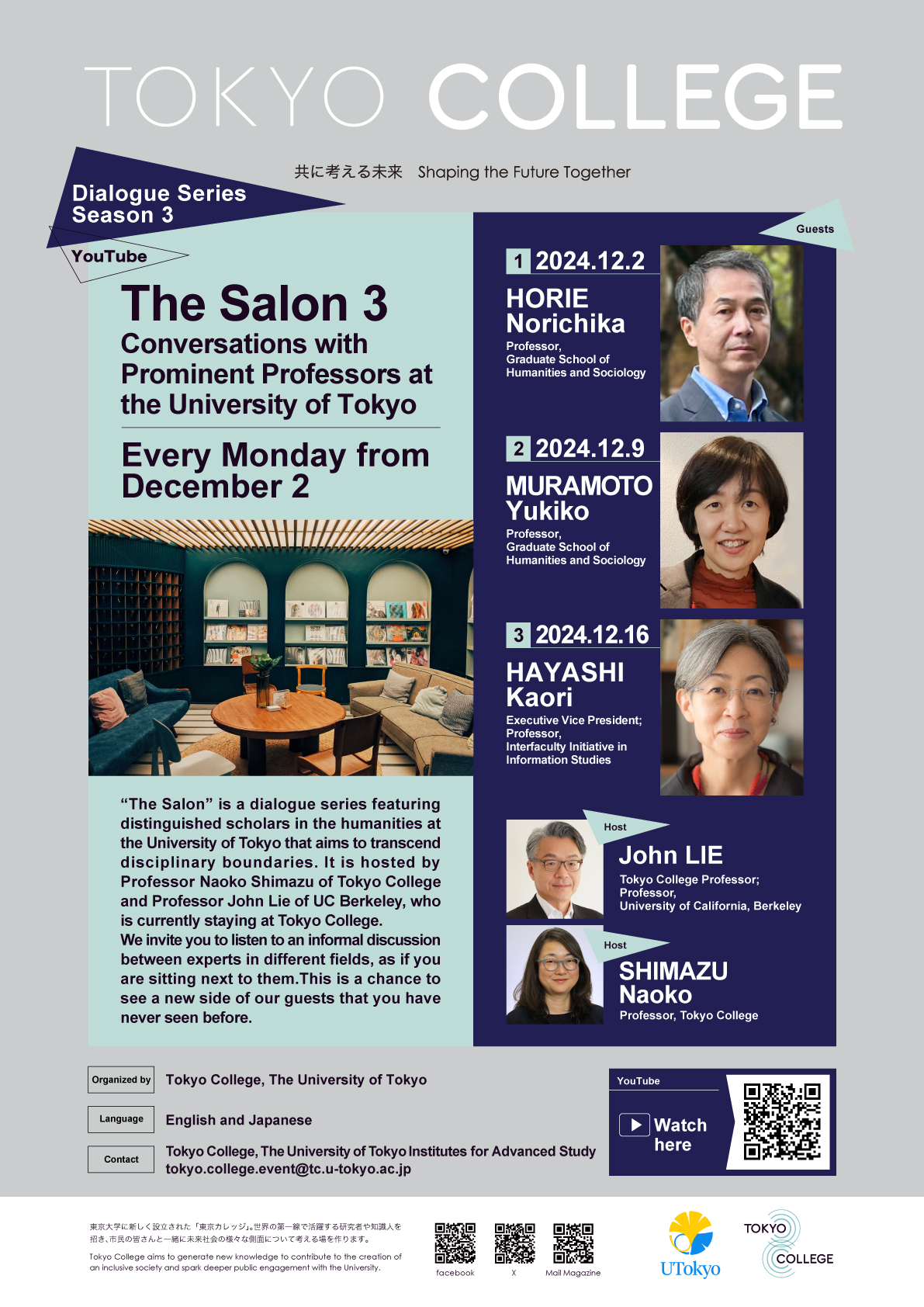The Salon ー Conversations with Prominent Professors at the University of Tokyo (Season 3)

| Date(s) | Every Monday from December 2, 2024 (Available from 17:00 JST) |
|---|---|
| Venue | |
| Language | English (English Subtitles are provided for the Dialogue in Japanese) |
| Abstract |
“The Salon” is a dialogue series featuring distinguished scholars in the humanities at the University of Tokyo that aims to transcend disciplinary boundaries. It is hosted by Professor Naoko Shimazu of Tokyo College and Professor John Lie of UC Berkeley, who is currently staying at Tokyo College. We invite you to listen to an informal discussion between experts in different fields, as if you are sitting next to them.This is a chance to see a new side of our guests that you have never seen before. |
| Program |
2024.12.2
2024.12.9
2024.12.16 |
| Organized by | Tokyo College, The University of Tokyo |
| Contact | tokyo.college.event@tc.u-tokyo.ac.jp |
















